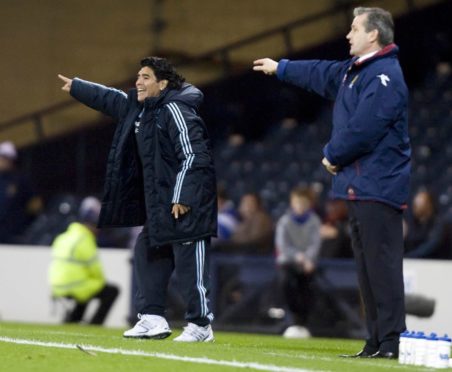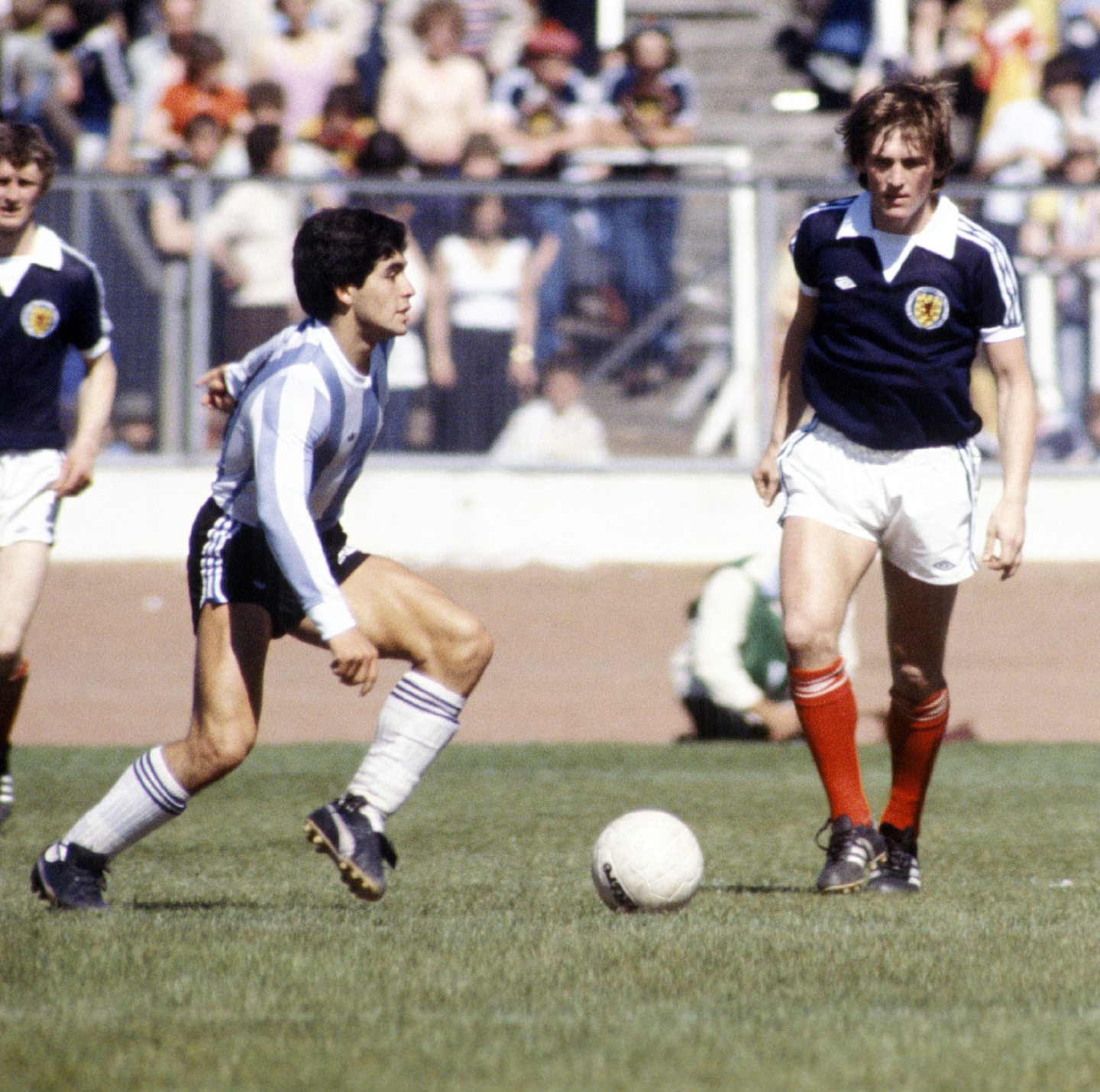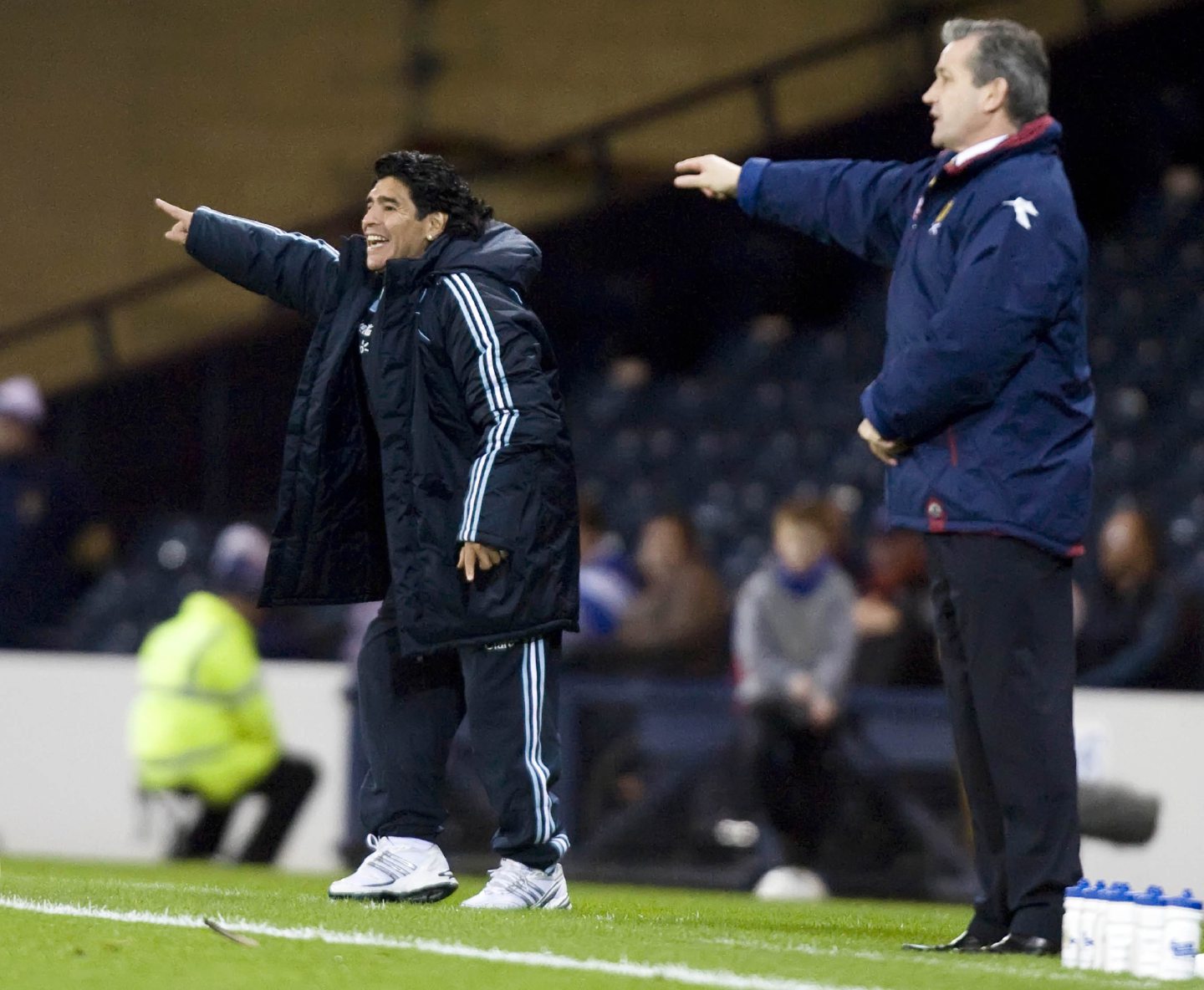Diego Maradona, arguably the greatest football player of all time, has passed away at the age of 60.
The Argentine Football Association broke the news earlier today.
Maradona, who underwent treatment for a blood clot on his brain earlier this month, was reportedly suffering from alcohol dependency.
The diminutive attacker’s greatest moment came at the 1986 World Cup in Mexico, where he led his country to victory, famously scoring with his hand – the ‘Hand of God’ – against England in their quarter-final, before a sublime second where he ran from his own half before again beating Peter Shilton.
Maradona also led his country to the final of Italia 90 on the pitch and was head coach of the side at South Africa 2010.
During his playing career, which like his later life wasn’t without its controversies, Maradona also turned out for the likes of Boca Juniors, Barcelona and Napoli, winning trophies with all three, including Serie A (twice), the Coppa Italia, the Copa del Rey and the UEFA Cup.
When Maradona graced Hampden
The first time an Argentine team visited Hampden to play Scotland – for a friendly against the men’s side in 1979 – a little bit of history was made.
The South Americans won the Mount Florida clash 3-1, but more significant was the sparkling performance of 18-year-old Maradona.
Argentina had won the World Cup on home soil the year before without the man who would go on to become one of the game’s greatest players. He had been left out of the triumph because he was deemed too young.
However, at Hampden, he showed the talent which would help him drag his country to the Mexico ’86 crown.
Maradona created the first goal, passing to Leo Luque to finish after he’d left Paul Hegarty and Alan Hansen for dead.
Luque then grabbed a second after the famous no 10 had lashed left-footed against one of the posts.
Maradona scored Argentina’s third himself.
One sidestep fooled the entire Scotland defence, which also included George Burley, before finishing past George Wood.
There was a late consolation for ex-Aberdeen man Arthur Graham – however, it was only ever going to be the Maradona show.
Scottish fans’ ‘fantastic support’
It did not prove to be the footballing icon’s last trip to Mount Florida, however.
As Argentina boss in 2008, he led his team to Glasgow for a friendly against George Burley’s Scots, with the visitors triumphing 1-0.
Before the game, Maradona said this about his Scottish fans: “I am very happy to be back in Scotland after so long away, and this is a very proud moment for me to be leading Argentina out in Glasgow as national coach.
“I want to repay the Scottish fans for their fantastic support by producing a fantastic spectacle of football.”


